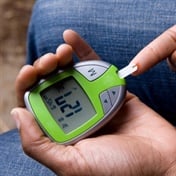- More than 4.5 million South African adults are currently living with diabetes
- This puts them at significant risk for the future onset of life-threatening co-morbidities
- There is currently an increased admission of patients with both Covid-19 and diabetes into intensive care units
The severe acute respiratory syndrome coronavirus 2 (SARS-CoV-2) causes Covid-19 that has resulted in overwhelming morbidities and mortalities with more than 1.2 million lives claimed so far. Moreover, people with certain pre-existing conditions, such as diabetes, appear to be more susceptible to Covid-19.
Diabetes mellitus poses a significant health burden that currently affects about 463 million people worldwide, and this number is predicted to increase to 578 million by the year 2030. Last year the International Diabetes Federation reported a 12.8% prevalence of diabetes in South Africa, a staggering 137% increase since their previous report that was published in 2017.
World Diabetes Day
It is estimated that more than 4.5 million South African adults are currently living with diabetes, with around two million being undiagnosed for this debilitating condition. This puts them at significant risk for the future onset of life-threatening co-morbidities given that diabetes is associated with long-term cardiovascular complications, particularly the narrowing and hardening of the arteries, thus further contributing to the overall burden of disease.
As we observe World Diabetes Day on 14 November, a rhetorical question arises, namely, how are these two diseases connected? As mentioned earlier, individuals suffering from diabetes exhibit an increased risk for Covid-19-related morbidities and mortalities. Findings from a number of studies show an increased admission of patients burdened with both Covid-19 and diabetes into intensive care units (ICU).
These data also reveal that such patients often require ICU management with mechanical ventilation, and are more likely to die when compared to their non-diabetic Covid-19 positive counterparts. In addition, diabetes can co-present with other risk factors such as obesity and hypertension (forming part of the so-called metabolic syndrome) that are recognised as significant contributors to a higher mortality risk for Covid-19 patients.
Why do Covid-19 patients with diabetes display increased morbidity and mortality rates? Blood sugar (glucose) levels emerge as a crucial pathological factor in this instance. Here, previous studies show that hospitalised diabetic patients with well-controlled blood glucose levels exhibit relatively high survival rates. For example, a study of 7 337 Covid-19 cases in China found that those also burdened with diabetes, but exhibiting lowered variations in glucose levels (3.9 to 10.0 mmol/L), were linked with decreased medical interventions and mortality.
SARS CoV-2 can damage beta cells
By contrast, those with inadequately controlled levels and exceeding specific thresholds display a relatively poor survival rate. High blood glucose levels in the body can elicit a number of detrimental outcomes that will exacerbate the damaging effects of SARS-CoV-2. For example, it can impair the immune system and can also decrease the removal of SARS-CoV-2 from the body to thereby increase the propensity of the virus to elicit further harmful effects.
There is a strong connection between diabetes and increased secretion of molecules able to promote inflammation in the body. This can further impair the immune response and also increase SARS-CoV-2 virulence. SARS CoV-2 can also damage certain cells (beta cells) in the pancreas that usually secrete sufficient amounts of insulin into circulation in order to lower glucose levels. Such viral-mediated cell damage can further elevate blood glucose levels in circulation, albeit mostly in a transient fashion, as a result of lowered insulin-mediated glucose uptake by various target tissues.
Of note, the phenomenon of Covid-19-related new diabetes onset was also reported, and this likely occurs (in part) as a result of SARS-CoV-2-mediated effects on pancreatic beta cells. Here patients with previously undiagnosed diabetes should also be considered.
As obesity is closely linked to diabetes onset, its impact should also be considered in this regard. Obesity is usually associated with a chronic low-grade inflammatory state in the body that can be further exacerbated by SARS-CoV-2 and culminate in harmful clinical outcomes. Clinicians are therefore vigilant as they attempt to maintain blood glucose levels within acceptable clinical ranges to thereby improve the prognosis of diabetic patients suffering from Covid-19. However, in cases where blood glucose levels drop too low because of specific treatments, this may also negatively impact on clinical outcomes.
Negative metabolic and clinical outcomes
The impact of lockdown during the pandemic should also be considered as there are some studies that show increased weight gain together with a greater risk for diabetes onset during this period. For example, a study to determine the impact of lockdown on diabetes onset in India reported weight gain and a tendency towards increased risk for diabetes onset. Here, 40% of the recruited individuals displayed a 0.1 to 5 kg and 16% of them a 2.1 to 5 kg weight increase respectively.
Other factors, such as psycho-social stress and loneliness due to lockdown, may also result in negative metabolic and clinical outcomes. Such individuals may be prone to eat more and are hence at a higher risk for the onset of obesity and diabetes. Stress may also trigger the increased activation of the sympathetic nervous system that can lead to inflammation and oxidative stress (a form of damage to cells in the body). Also, the lack of sufficient physical activity during these periods can further exacerbate such complications.
The clinical management of Covid-19 patients with diabetes usually focuses on controlling blood glucose using various pharmacological treatment options. Moreover, clinicians will also target co-morbidities such as cardiovascular diseases if they manifest in these patients. It should be noted that the clinical management of such patients may be challenging in resource-strapped settings and may thus be impacted upon by the availability of personal protective equipment, regular blood glucose monitoring and the intravenous supply of insulin.
*Prof Faadiel Essop is Director of the Centre for Cardio-metabolic Research in Africa (CARMA) at Stellenbosch University.
Image credit: Getty Images




 Publications
Publications
 Partners
Partners











